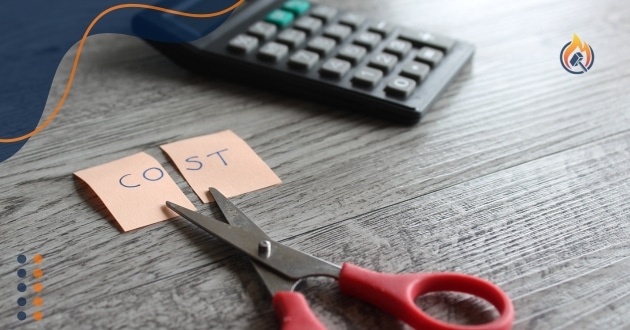Tips for reducing household expenses are essential for families aiming to achieve financial stability while maintaining their desired lifestyle. As living costs rise globally, managing household budgets effectively has become a crucial skill for many. With the right strategies, cutting down on unnecessary expenses can free up money for savings and long-term goals.
Moreover, tips for reducing household expenses aren’t just about limiting spending but also about making smarter choices. Simple changes, such as monitoring energy consumption or choosing budget-friendly meal plans, can significantly impact overall savings. These changes not only benefit your wallet but also promote more sustainable living practices.
Lastly, adopting tips for reducing household expenses helps alleviate financial stress and fosters better money management habits. By implementing these strategies, you can enjoy a more secure financial future while still prioritizing the needs of your household. In this article, we’ll explore actionable ideas, expert insights, and real-life examples to help you start saving effectively.
Analyze and Optimize Your Monthly Budget: Tips for Reducing Household Expenses
The first step in reducing household expenses is analyzing your current spending habits. Start by listing all recurring costs, such as utilities, groceries, subscriptions, and transportation. Tools like Mint or YNAB (You Need a Budget) can help track spending and identify areas to cut back.
Once you’ve identified unnecessary expenses, set realistic financial goals. For instance, consider reducing your dining-out budget by 20% or switching to a more affordable mobile plan. Small adjustments can lead to significant savings over time.
Additionally, prioritize needs over wants. Focus on essential expenses, like mortgage payments or rent, before allocating funds for entertainment or luxury items. This approach ensures that your money is being used effectively to support your financial goals.
Lower Utility Bills Through Energy Efficiency: Tips for Reducing Household Expenses
Utility bills often account for a significant portion of household expenses, but there are practical ways to reduce them. Start by using energy-efficient appliances, which consume less power and lower electricity costs. For example, replacing incandescent bulbs with LED lights can save up to 80% on lighting expenses.
Moreover, adopt habits like unplugging devices when not in use, sealing windows to prevent heat loss, and using a programmable thermostat. These small yet impactful changes not only reduce energy consumption but also contribute to a greener environment.
Experts also recommend conducting an energy audit. Many local utility companies offer free or low-cost audits to identify inefficiencies in your home. Addressing these inefficiencies, such as poor insulation or outdated HVAC systems, can lead to substantial savings.
Save on Groceries with Strategic Shopping

Groceries are another major expense for households, but strategic shopping can help you save significantly. Start by creating a meal plan and shopping list to avoid impulse purchases. Stick to buying items in bulk, especially non-perishables, and look for sales or discounts on your favorite brands.
Additionally, consider substituting branded products with store-brand alternatives, which are often just as good in quality but much cheaper. Using cashback apps like Rakuten or Ibotta can also help you earn money on grocery purchases.
For further savings, limit food waste by storing items properly and repurposing leftovers. For example, vegetable scraps can be used to make homemade broth, saving money and reducing waste.
Cut Down on Transportation Costs: Tips for Reducing Household Expenses

Transportation costs, such as fuel, car maintenance, or public transit, can quickly add up. To reduce these expenses, consider carpooling with coworkers or using rideshare services when possible. Additionally, walking or biking for short trips not only saves money but also promotes a healthier lifestyle.
For those who rely on public transit, look into monthly passes or discounted rates for frequent commuters. Similarly, maintaining your vehicle regularly, such as checking tire pressure and changing oil, can improve fuel efficiency and prevent costly repairs in the future.
Insights from Financial Experts
Financial advisor Jane Miller highlights the crucial role of creating a well-structured spending plan to achieve financial stability. “Tracking your expenses regularly ensures that you stay on budget and identify unnecessary costs,” she explains. This means monitoring both fixed and variable expenses to understand where your money is going and where adjustments can be made. Jane also advises allocating 10% of your income to a dedicated emergency fund.
This financial cushion helps prepare for unexpected situations, such as medical bills or car repairs, reducing the need to rely on credit cards or loans during crises. To make saving easier, she recommends automating transfers to your savings account, ensuring consistency and removing the temptation to spend the money elsewhere.
Budgeting expert David Kim adds another layer of practicality by encouraging the use of cashback programs and rewards cards to optimize everyday spending. “Many people overlook the potential savings from credit card rewards, which can offset household expenses like groceries or gas,” he notes. However, he cautions against overspending just to earn rewards and stresses the importance of paying off the balance in full each month to avoid interest charges. By strategically using these programs, families can accumulate meaningful savings over time, which can then be redirected toward other financial goals, such as paying down debt or investing.
Both experts agree that budgeting is not just about cutting costs but also maximizing resources to create a balanced financial plan. They emphasize the importance of setting short- and long-term financial goals, tracking progress, and celebrating small wins to maintain motivation.
Case Study: The Thompson Family’s Savings Journey
The Thompson family, living in Toronto, was struggling with high monthly expenses, particularly utility bills and grocery costs. After conducting a household audit, they installed energy-efficient appliances and started meal planning. By making these adjustments, they reduced their monthly utility bill by 25% and saved $200 on groceries.
Additionally, they switched to a cashback credit card for everyday purchases, earning $1,500 in rewards over a year. This extra cash allowed them to start a small emergency fund, providing greater financial security.
To further improve their financial situation and avoid future challenges, the Thompson family could invest in home insulation to reduce energy loss and lower utility costs, purchase non-perishable items in bulk to save on groceries, and review subscriptions and service plans to eliminate unnecessary expenses.
They should also set specific savings goals, such as using cashback rewards to grow their emergency fund or finance long-term objectives, while engaging the entire family in financial education to encourage mindful spending and budgeting. Additionally, ensuring adequate insurance coverage for health and home emergencies would provide a safety net against unforeseen circumstances, fostering long-term financial resilience.
Avoid Common Mistakes
Managing household finances effectively requires avoiding common pitfalls that can derail even the best budgeting efforts. One often overlooked mistake is failing to monitor small, seemingly insignificant expenses. These minor outlays, such as daily coffee runs or impulse buys, can quietly accumulate into a substantial financial burden over time. To prevent this, make it a habit to review your spending habits regularly, ensuring that every dollar spent aligns with your financial goals.
Another frequent error is underestimating the impact of unused or unnecessary subscription services. Streaming platforms, gym memberships, and premium app subscriptions are convenient but can drain your budget if left unchecked. Conducting a periodic audit of all active subscriptions and canceling those you no longer use or need can free up significant funds that could be better allocated toward savings or debt repayment.
Lastly, many families neglect to plan for irregular expenses, such as annual insurance premiums, holiday gifts, or unexpected repairs. Setting aside a portion of your income each month into an emergency or sinking fund can provide a safety net, reducing the need to rely on credit cards or loans during financial surprises. By staying proactive and addressing these common missteps, you can maintain better control of your finances and work toward long-term stability.
Conclusion: Take Control of Your Household Budget
Implementing these tips for reducing household expenses can significantly improve your financial health while ensuring a comfortable lifestyle. From analyzing your budget to embracing energy efficiency and strategic shopping, these steps make saving money both achievable and sustainable.
Ultimately, financial discipline and informed decisions are key to long-term success. By starting small and making consistent efforts, you can secure a stable future for your family while enjoying the present without unnecessary financial stress. Start today and see the difference thoughtful budgeting can make!
In conclusion, achieving financial freedom in Canada starts with understanding and implementing effective strategies to manage your debts. By prioritizing budgeting, exploring debt consolidation options, and seeking professional advice when needed, you can take control of your financial situation and work towards a stress-free future. For a deeper dive into Debt Management Strategies Canada, explore resources that can guide you on your journey to reducing debt and regaining financial stability.


